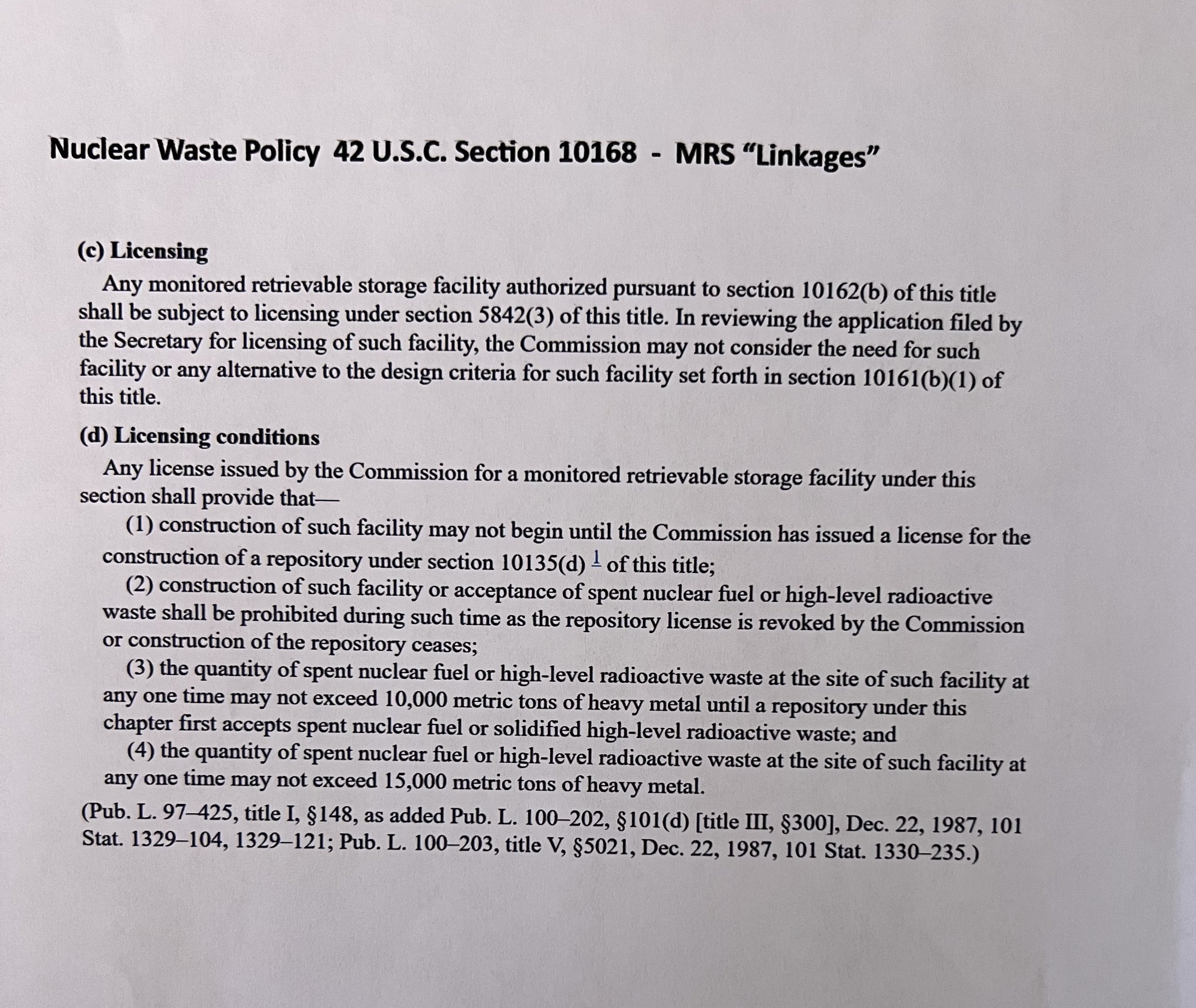Episode 6: Caroline Petti & Leon Lowery
On Episode 6 of the Lone Star Deep Dive Podcast, host Tonya Kleuskens talks with Caroline Petti and Leon Lowery about the Nuclear Waste Policy Act of 1982 and how the search for a Nuclear Waste Repository was derailed by political agendas and poor nuclear waste siting decisions.
In the amending of the NWPA December 22, 1982, Caroline and Leon advocated for the MRS-linkages - that is, the provisions of the Nuclear Waste Policy Act linking the Monitored Retrievable Storage (MRS) to an existing repository. It was this law that supported the Fifth Circuit Court of Appeals ruling that the Nuclear Regulatory Commission licensing for a site in Texas did not meet the conditions of the NWPA.
Caroline Petti has had a lengthy career in the field of environmental protection, much of it devoted to protecting people and the planet from the hazards of radioactive waste. Ms. Petti grew up in Washington DC and began her career there in the early 1980s as an environmental lobbyist. At that time, the fundamentals of US nuclear waste policy were being hotly debated in the US Congress. She enthusiastically joined the conversation having been personally affected by poor nuclear waste siting decisions, focusing her efforts on long-term disposal best practices, science-based site selection process, strong environmental protections, and meaningful citizen engagement — and many of the fruits of her efforts were successfully incorporated into the Nuclear Waste Policy Act of 1982.
But it didn't take long for US Department of Energy political missteps and mismanagement to emerge. Citizen and environmental groups sprang into action and formed a multi-state coalition known as the National Nuclear Waste Task Force. Ms. Petti directed the task force which advocated a four-point plan of correction: a temporary program pause, establishment of an independent review commission, to determine how best to keep the program rightly focused on long-term disposal best practices, disapproval of the DOE's “Monitored Retrievable Storage” alternative, and increased funding for safe at reactor storage technologies. It was this advocacy that led to successful negotiations of the MRS-linkages - that is, the provisions of the Nuclear Waste Policy Act linking the MRS to the repository. The goal of the linkages was to prevent the MRS from superseding long-term disposal. Though there are many who would have them repealed, the MRS linkages have stood the test of time and figured prominently in the Fifth Circuit’s recent rulings overturning Nuclear Regulatory Commission licensing for nuclear waste storage in Andrews County, Texas and in Lee County, New Mexico.
In 1989, Ms. Petti went to work for the Environmental Protection Agency. After nearly 20 years there, working to defend strong health standards for nuclear waste and clean air, Ms. Petti retired in 2007. She continues to be very active in civic and political affairs including being an active member of the DC League of Women Voters in the quest for DC statehood.
Leon Lowery was born in Arab, AL. He was an army brat and grew up all over the US and the world. (Germany, Japan, and Turkey). After graduating from the University of Tennessee, he worked as a Carpenter around East Tennessee for a few years while pursuing a career playing music. In 1986 while he was living in Kingston, TN and raising a daughter, the Department of Energy (DOE) announced its intention to build a nuclear waste storage facility in nearby Oak Ridge. It was known as the Monitored Retrievable Storage facility or MRS. He became active in opposing this facility. Then formed the Southern Environmental Network with like-minded environmentalists from the southeast and joined Ms. Petti and the National Nuclear Waste Task Force, whose efforts culminated in the enactment of the MRS linkages described earlier.
Mr. Lowry began to turn his attention to electricity and renewable energy issues, and in 1994, went to work for the House of Representatives Energy and Commerce Committee, Energy and Power Subcommittee. In 1995, he went to the Federal Energy Regulatory Commission as Assistant to the Director of the Office of Electric Power Regulation, and in 2000, he went to the US Senate, Committee on Energy and Natural Resources. Leon retired from the committee in 2013.
Leon and Caroline were wed in 2005 thereby proving the impossible: that good things CAN come from nuclear waste.
DIVE DEEPER!
TESTIMONY OF DAN W. REICHER NATURAL RESOURCES DEFENSE COUNCIL and CAROLINE PETTI, SOUTHWEST RESEARCE AND INFORMATION CENTER
TO
THE MONITORED RETRIEVABLE STORAGE REVIEW COMMISSION

